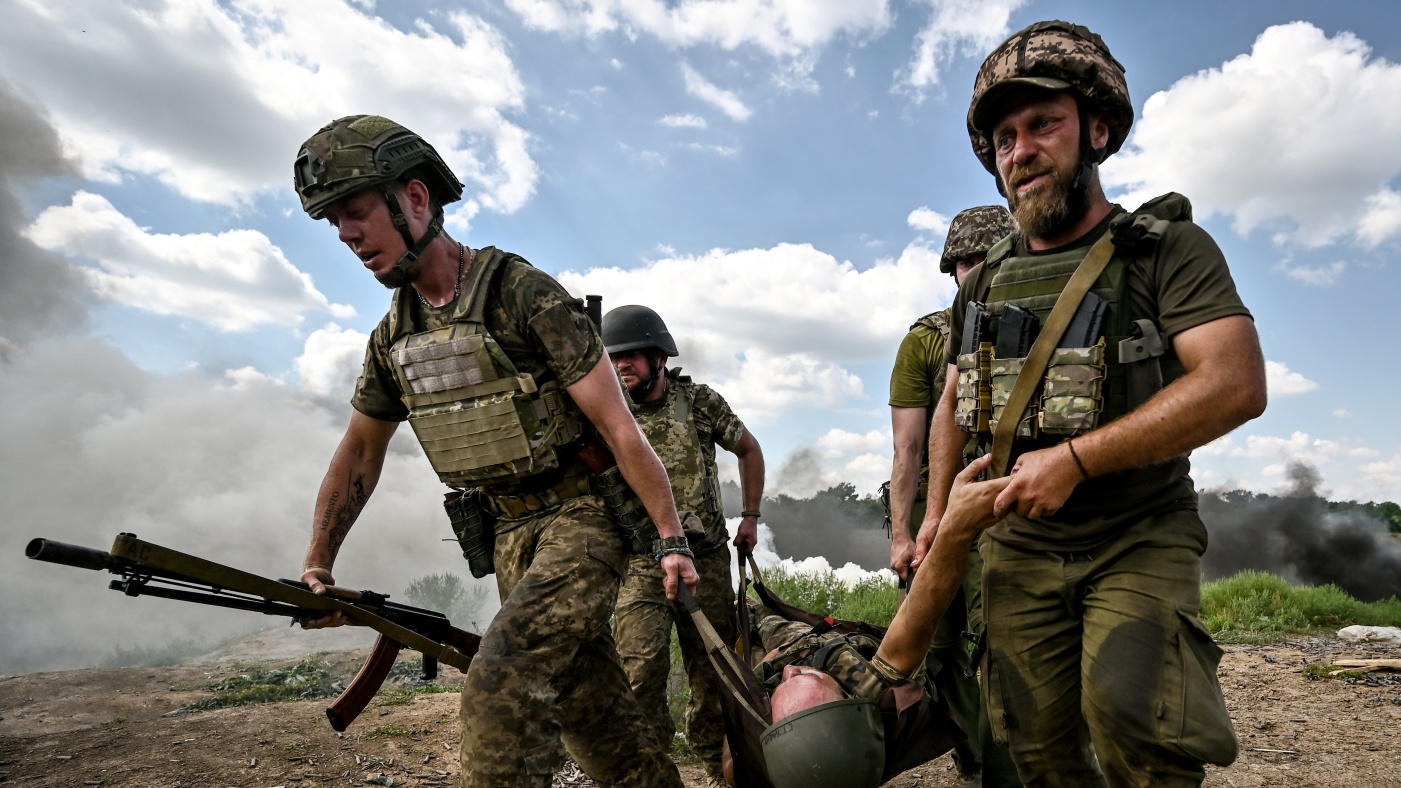Ukrainian military has ‘shown how the Russian army can be beaten’
Recent Ukrainian frontline advances may offer hope for its counter-offensive

A free daily email with the biggest news stories of the day – and the best features from TheWeek.com
You are now subscribed
Your newsletter sign-up was successful
“The Russians are losing their war on Ukraine,” said Daniel Johnson in The Daily Telegraph. “They just don’t know it yet.”
In recent months, the Western media has been full of stories about how the Ukrainian counter-offensive is stalling. This is immensely frustrating for the Ukrainians: last week, the foreign minister Dmytro Kuleba told critics abroad to “shut up, come to Ukraine and try to liberate one square centimetre by themselves”.
But the stories are also inaccurate. Over the past ten days, Ukrainian forces have decisively breached parts of the so-called Surovikin Line in Zaporizhzhia province in the south: the forbidding lines of mines, dragons’ teeth, anti-tank obstacles and trenches designed by the Russian commander Sergey Surovikin. Key villages have fallen, such as Robotyne and Verbove. If the Russians cannot hold the Surovikin Line, “they could well suffer a rout” – as happened last year. And if the Ukrainians break through, they could soon reach the Black Sea, cutting Russia’s forces in half.
The Week
Escape your echo chamber. Get the facts behind the news, plus analysis from multiple perspectives.

Sign up for The Week's Free Newsletters
From our morning news briefing to a weekly Good News Newsletter, get the best of The Week delivered directly to your inbox.
From our morning news briefing to a weekly Good News Newsletter, get the best of The Week delivered directly to your inbox.
Acceleration ‘offers hope’
Since 4 June, when the counteroffensive started, Ukraine has liberated just over 100 sq km of territory – a tiny percentage of the 100,000 sq km remaining in Russian hands, said The Economist. But the recent acceleration “offers hope”. Beyond the first section of the Surovikin Line, Russia’s defences are shallower and troop concentrations thinner. Western munitions – cruise missiles, rocket artillery, cluster bombs – have helped to degrade Russian forces. The idea of a “sudden surge” is not inconceivable.
Not inconceivable, said Frank Ledwidge in The Guardian, but unlikely. So far, at best, the Ukrainians have advanced eight miles; they have more than 50 miles to cover to get to the sea. More likely is a First World War-style conflict, a series of slow, bitterly fought “bite and hold” operations.
Ukraine must avoid ‘hasty timetable’
The Ukrainian military has “shown how the Russian army can be beaten”, said Richard Barrons in the Financial Times. “Not in 2023, but in 2024 or 2025.” The crucial thing is that Ukraine is not forced to commit to “a hasty timetable” because of Western impatience. Big wars “are fought at the scale and pace they evolve into”.
The Ukrainians have now found a way to advance without incurring crippling casualties. In the long term, the determining factor will be “defence industrial capacity”. Ammunition from new production lines being built by Ukraine’s allies will appear in 2024. This should be “a major turning point” in the war. In the meantime, “relentless pressure must be maintained on the Russian occupation throughout the winter”.
A free daily email with the biggest news stories of the day – and the best features from TheWeek.com
-
 Political cartoons for February 16
Political cartoons for February 16Cartoons Monday’s political cartoons include President's Day, a valentine from the Epstein files, and more
-
 Regent Hong Kong: a tranquil haven with a prime waterfront spot
Regent Hong Kong: a tranquil haven with a prime waterfront spotThe Week Recommends The trendy hotel recently underwent an extensive two-year revamp
-
 The problem with diagnosing profound autism
The problem with diagnosing profound autismThe Explainer Experts are reconsidering the idea of autism as a spectrum, which could impact diagnoses and policy making for the condition
-
 The fall of the generals: China’s military purge
The fall of the generals: China’s military purgeIn the Spotlight Xi Jinping’s extraordinary removal of senior general proves that no-one is safe from anti-corruption drive that has investigated millions
-
 Epstein files topple law CEO, roil UK government
Epstein files topple law CEO, roil UK governmentSpeed Read Peter Mandelson, Britain’s former ambassador to the US, is caught up in the scandal
-
 Iran and US prepare to meet after skirmishes
Iran and US prepare to meet after skirmishesSpeed Read The incident comes amid heightened tensions in the Middle East
-
 Syria’s Kurds: abandoned by their US ally
Syria’s Kurds: abandoned by their US allyTalking Point Ahmed al-Sharaa’s lightning offensive against Syrian Kurdistan belies his promise to respect the country’s ethnic minorities
-
 Israel retrieves final hostage’s body from Gaza
Israel retrieves final hostage’s body from GazaSpeed Read The 24-year-old police officer was killed during the initial Hamas attack
-
 China’s Xi targets top general in growing purge
China’s Xi targets top general in growing purgeSpeed Read Zhang Youxia is being investigated over ‘grave violations’ of the law
-
 Panama and Canada are negotiating over a crucial copper mine
Panama and Canada are negotiating over a crucial copper mineIn the Spotlight Panama is set to make a final decision on the mine this summer
-
 Iran unleashes carnage on its own people
Iran unleashes carnage on its own peopleFeature Demonstrations began in late December as an economic protest